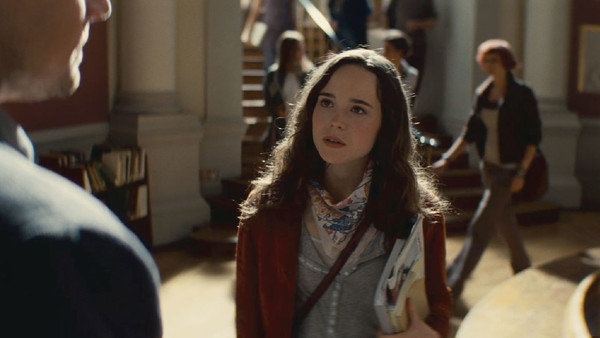Film Theory: Cobb Is The Real Dream Target In Inception
What if there's more to Christopher Nolan's mind-bending thriller than it seems?
For years now, fans of Christopher Nolan's Inception have sought an answer to one question beyond all others. They've sought reason in that loaded final shot of Cobb's totem spinning. Was he dreaming all along?
But sometimes when you focus on one element - one that you've perhaps been led to focus on more than any other - you might miss the really important question that arguably matters more. In Inception, the question that matters most is not whether Cobb is dreaming at the end of the movie, it concerns his entire role in the movie and in the heist at its centre.
We're presented with the idea that Cobb is an inception agent, hired by Ken Watanabe's Saito to implant the idea that target Robert Fischer (Cillian Murphy) should break up his company by suggesting that his father had intended to do the same thing. In essence, the plan is to make Fischer give himself the idea by travelling deep enough into his subconscious that a simple form of the idea will take root.
Crucially, the film establishes that the subconscious is governed not by reason, but by emotion, which is how the inception is achieved and that positive emotion is far more effective. On first reflection, the target is Fischer and the targeter is his rival Saito, who seeks to break up his father's empire for his own gain.
However, there's a possibility that it's not Fischer at all, but Cobb who is the real target, with Michael Caine's Miles seeking to incept an idea into his head to save him. That idea? That he needs to move on from his guilt at the death of his wife Mal (Marion Cotillard) and get on with his wife rather than obsessing over it.
The theory goes that Miles employs Ariadne (Ellen Page) to plant the idea deep within Cobb's subconscious and that the key to her achieving that begins with a simple, repeated phrase:
"Do you want to become an old man, filled with regrets, waiting to die alone".
That phrase is first spoken by Saito during the initial conversation about incepting Fischer, then within the first level of Fischer's dream as Saito lays injured from a gunshot wound and then finally when Cobb finds Saito in Limbo. With each utterance, the emotional context is heightened and the impact on Cobb is far more pronounced.
Ariadne is the real key here, though. Even her name is chosen precisely as a clue to her true nature. She is named for Ariadne, lover of Theseus who helped him escape the labyrinth and the Minotaur. Literally the function she is employed to undertake by MIles to help save Cobb.

Not only that she also expressly tells Cobb that “The deeper we go into Fischer, the deeper we go into you." She's not talking metaphorically because the heist is making Cobb confront his own complicated psychology, she's literally giving away her own plot.
In an inception, the deepest level of the target has a safe where the target keeps their deepest memories and feelings - the place where the inception has to take place to really work - hence Fischer's implanted idea being placed in a safe. We don't see that with Cobb, but we do see a different form of safe: an emotional tomb of sorts that holds his most valuable memory (though it is painful and toxic rather than cherished).
We see that Cobb has created a series of floors accessible by an elevator and each defined by a moment he regrets and which is key to his own failed attempts to reclaim his life. He says he needs to change those memories, which is why he's locked them in permanently, but on the final, forbidden basement level he has locked away the memory of the last time he saw his wife alive. It might not be a physical safe, but the way he's trapped the idea works exactly the same way.
The only way to penetrate that final level to get the idea into Cobb's subconscious is for Ariadne to break into it and transmit the idea. She has to achieve that through challenging what drives his entrapment - regret - partly by having Cobb speak to Mal and tell her that they did actually grow old together while they were lost in Limbo. He is inspired to confront that idea by the implantation of Saito's mantra of becoming "an old man filled with regret, waiting to die alone," realising that he both doesn't want that (as Mal's projection does) and that he lived a life of happiness with her.
Ariadne also symbolically kills Mal at the root of her toxic "infection" of Cobb, which ultimately also frees him. He has come to realise that he is no longer at the mercy of her entrapment and that he can let his regrets leave him and move on.
Even if the ending of the film suggests that he's still dreaming, it doesn't matter. What matters is that he's free of his regrets and has conquered his demons and can be with his children. Even if he's dreaming, he's been woken up and it's all thanks to that central inception.
What do you think of this theory? Share your reactions below in the comments thread and don't forget to subscribe to ThatFilmTheory.